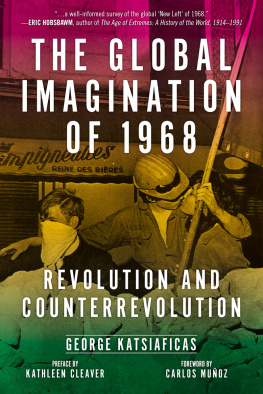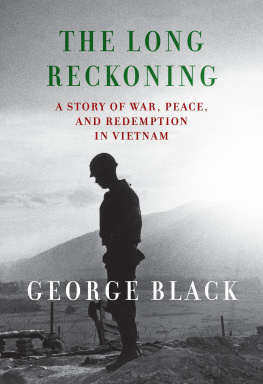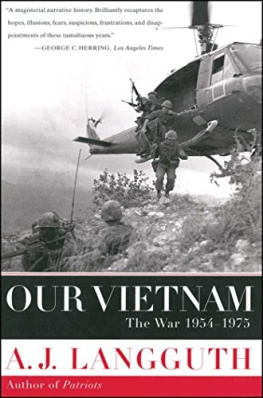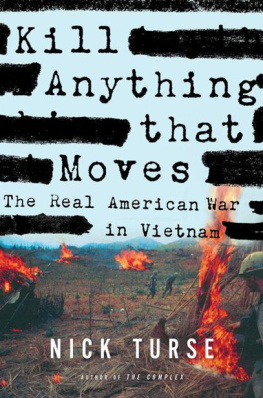George Katsiaficas - Vietnam Documents: American and Vietnamese Views
Here you can read online George Katsiaficas - Vietnam Documents: American and Vietnamese Views full text of the book (entire story) in english for free. Download pdf and epub, get meaning, cover and reviews about this ebook. year: 2016, publisher: Routledge, genre: History. Description of the work, (preface) as well as reviews are available. Best literature library LitArk.com created for fans of good reading and offers a wide selection of genres:
Romance novel
Science fiction
Adventure
Detective
Science
History
Home and family
Prose
Art
Politics
Computer
Non-fiction
Religion
Business
Children
Humor
Choose a favorite category and find really read worthwhile books. Enjoy immersion in the world of imagination, feel the emotions of the characters or learn something new for yourself, make an fascinating discovery.

- Book:Vietnam Documents: American and Vietnamese Views
- Author:
- Publisher:Routledge
- Genre:
- Year:2016
- Rating:5 / 5
- Favourites:Add to favourites
- Your mark:
- 100
- 1
- 2
- 3
- 4
- 5
Vietnam Documents: American and Vietnamese Views: summary, description and annotation
We offer to read an annotation, description, summary or preface (depends on what the author of the book "Vietnam Documents: American and Vietnamese Views" wrote himself). If you haven't found the necessary information about the book — write in the comments, we will try to find it.
Vietnam Documents: American and Vietnamese Views — read online for free the complete book (whole text) full work
Below is the text of the book, divided by pages. System saving the place of the last page read, allows you to conveniently read the book "Vietnam Documents: American and Vietnamese Views" online for free, without having to search again every time where you left off. Put a bookmark, and you can go to the page where you finished reading at any time.
Font size:
Interval:
Bookmark:

George Katsiaficas

2 Park Square, Milton Park, Abingdon, Oxon OX14 4RN
711 Third Avenue, New York, NY 10017, USA
No responsibility is assumed by the publisher for any injury and/or damage topersons or property as a matter of products liability, negligence or otherwise, or from any use of operation of any products, instructions or ideascontained in the material herein.
p. cm.
Includes index.
ISBN 0-87332-896-5 ISBN 0-87332-897-3 (pbk.)
1. Vietnamese Conflict, 19611975Sources.
I. Katsiaficas, George, 1949
DS557.4.V55 1992
959.704'3dc20
91-22957
CIP
| HO CHI MINH |
| BERNARD B. FALL |
| GENERAL HOANG VAN THAI |
| BENJAMIN SPOCK AND M. ZIMMERMAN |
| U.S. CONGRESS |
| I. F. STONE |
| U.S. DEPARTMENT OF STATE WHITE PAPER |
| NATIONAL LIBERATION FRONT OF SOUTH VIETNAM |
| DEAN RUSK |
| HO CHI MINH |
| PEOPLE'S LIBERATION ARMED FORCES |
| LYNDON B. JOHNSON |
| MALCOLM X |
| STUDENTS FOR A DEMOCRATIC SOCIETY |
| STUDENTS FOR A DEMOCRATIC SOCIETY |
| RICHARD M. NIXON |
| VIETNAM VETERANS AGAINST THE WAR |
| HUEY P.NEWTON |
| HERBERT MARCUSE |
| RICHARD M. NIXON |
| GEORGE MCGOVERN |
| TRUONG CHINH |
| GOVERNMENT OF SOUTH VIETNAM |
| VU CAN |
| PAUL FEENY WITH JIM ALLAWAY |
| HENRY KISSINGER |
| TRUONG NHU TANG |
| LYNDON B. JOHNSON |
| HANS MORGENTHAU |
| VO NHAN TRI |
| RICHARD M. NIXON |
| NGO VINH LONG |
The First Indochina WarFrance
Font size:
Interval:
Bookmark:
Similar books «Vietnam Documents: American and Vietnamese Views»
Look at similar books to Vietnam Documents: American and Vietnamese Views. We have selected literature similar in name and meaning in the hope of providing readers with more options to find new, interesting, not yet read works.
Discussion, reviews of the book Vietnam Documents: American and Vietnamese Views and just readers' own opinions. Leave your comments, write what you think about the work, its meaning or the main characters. Specify what exactly you liked and what you didn't like, and why you think so.





